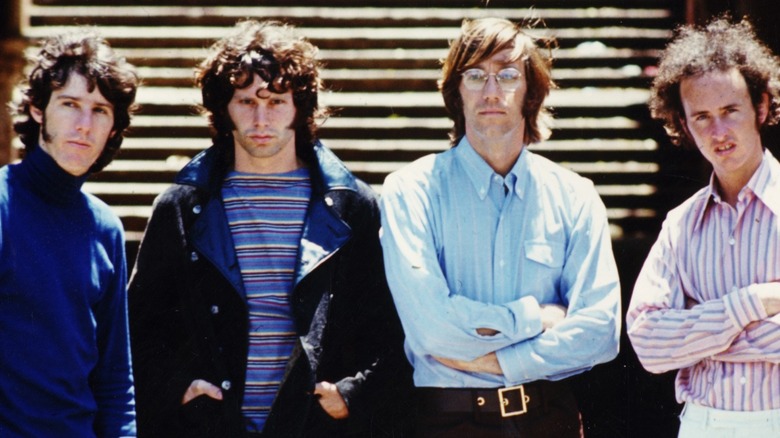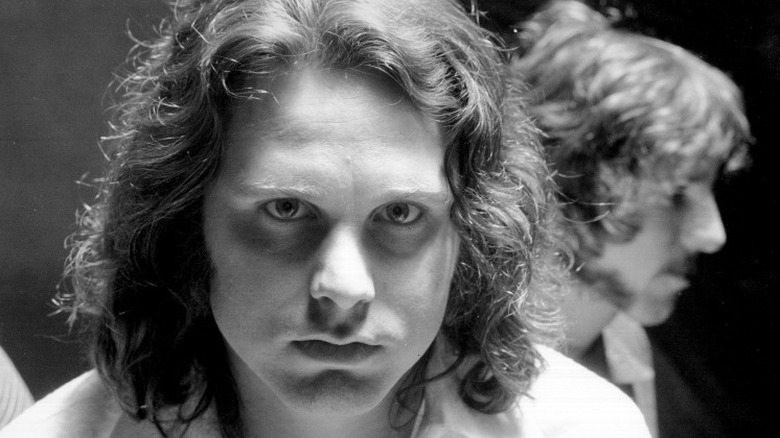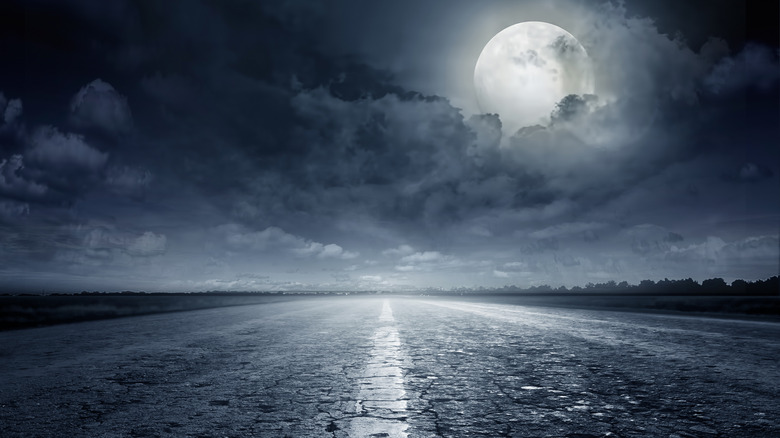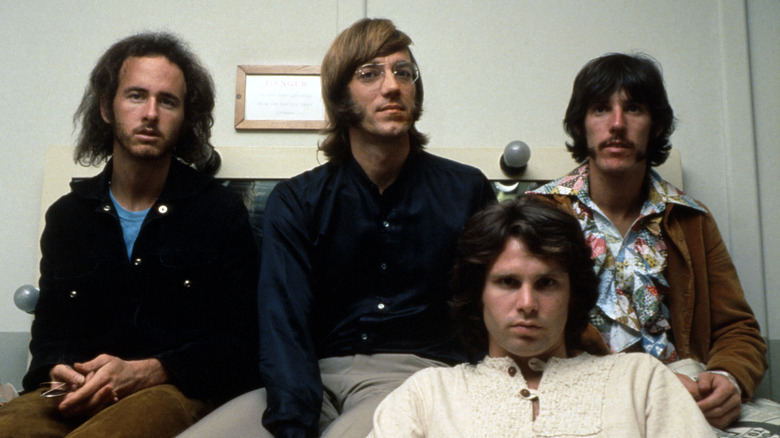The Unsettling Inspiration Behind The Doors' Song Riders On The Storm
Dark and moody, the song "Riders on the Storm" stands out as one of the greatest songs from The Doors. It seems almost cinematic with its rain and thunder sound effects in the background, and Jim Morrison's dramatic, intensive vocals. The song has proved to be so enduring that it earned itself a place in the Grammy Hall of Fame in 2009.
"Riders on the Storm" appeared on the 1971 album "L.A. Woman," which also featured such other legendary tunes as "Love Her Madly" (via AllMusic). It wasn't the band's easiest project as their producer Paul Rothchild quit during its making because he thought the music was awful, according to Rolling Stone. He disliked "Riders on the Storm," considering the song better suited to a cocktail lounge than a rock album. The Doors replaced Rothchild with Bruce Botnick, an engineer who had worked with the Beach Boys and the Rolling Stones. With Botnick's help, the band was able to complete the record.
Morrison's haunting lyrics drawn from real life
In terms of the music, "Riders on the Storm" began as a riff on the country song "(Ghost) Riders in the Sky: A Cowboy Legend" by Stan Jones (via Rolling Stone). During that jam session, the band's keyboardist Ray Manzarek developed the song's distinctive bassline and jazzy and blues sound, as he explained in this YouTube video. He explained that as they were playing with the song, singer Jim Morrison shouted out, "I've got lyrics for that."
By the time Morrison got to the second verse, the song took an even darker turn. He drew inspiration about "a killer on the road" from the real-life stories of deadly hitchhikers such as Billy Cook. Morrison was so fascinated by Cook that he even wrote a screenplay about Cook and his crimes, according to Far Out Magazine. While The Doors were envisioning the song taking place in a desert during a rainstorm, Cook's killing spree covered a much broader territory.
Convicted killer inspired Morrison
William "Billy" Cook, who was also known by the nickname "Cockeyed," killed six people in a crime spree that spanned several states, according to Life magazine. He was born in 1928 as one of 11 children belonging to William and Laura Cook in Missouri (via The Joplin Globe). Cook lost his mother to a brain hemorrhage when he was still very young and his father soon deserted the family. He bounced around between children's homes and foster families before he committed his first serious crime at 15. Cook robbed and beat a cab driver, and he was sent to reform school. He later added car theft to his criminal resume, which landed him in jail.
Paroled in 1950, Cook kidnapped a man named Lee Archer whom he had hitchhiked a ride from in Texas that December. He locked Archer in the car's trunk, but he later escaped. Cook took Archer's car to Oklahoma, and he hitchhiked another ride after that car broke down. He got in the car belonging to Carl Mosser and his family. After forcing the Mossers to drive around with him for several days, Cook ended up killing Carl, his wife Thelma, their three children, and the family dog, and dumping their bodies in a Missouri mineshaft. From there, he headed to California where he killed Robert Dewey and took his car. Cook was finally captured in Mexico, and he was executed at the age of 23 on December 12, 1952.
Morrison even made a movie about a hitchhiker
It'll probably never be known why Billy Cook's murderous travels as a hitchhiking killer left such a strong impression on Jim Morrison. The Doors' frontman was inspired to write an entire screenplay about Cook, and his fascination with Cook led to one of rock music's most unsettling verses. But when it came time to actually film the screenplay, the story went in a different direction. As Morrison explained to the Village Voice, they dropped the whole violent criminal angle to the movie and the only original element that was left was the character of the lonely hitchhiker. The film, starring Morrison, was called "HWY: An American Pastoral."
Like the film, Morrison didn't want to linger "Riders on the Storm" on such a gloomy note. After the verse about Cook, he switched subjects completely. Morrison sang a verse that seemed to be about a romantic relationship with the lyrics "Girl, you gotta love your man." This may be addressed to Morrison's girlfriend Pamela Courson, as Far Out Magazine pointed out. Not long after recording this song, Morrison and Courson headed to Paris, which was supposed to be a brand new start for the pair. Sadly, it was in this city that Morrison died on July 3, 1971.



